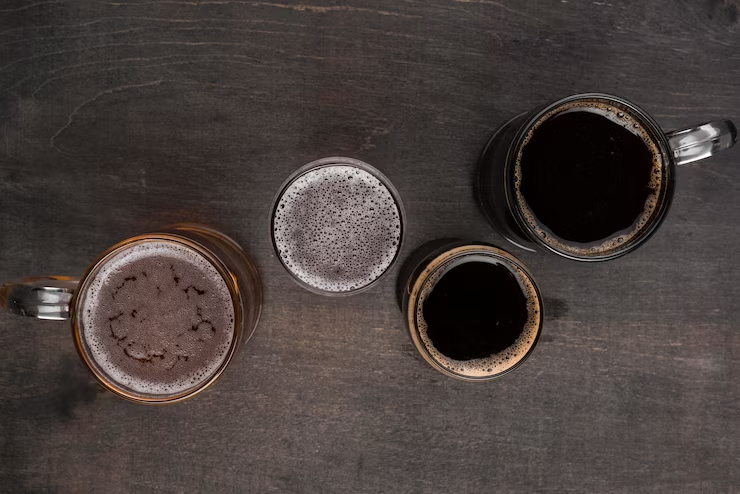Sleep plays a vital role in our overall health and well-being, and the quality of our sleep can be influenced by various factors, including our lifestyle choices. In South Africa, where the consumption of alcohol and caffeine is prevalent, it is essential to understand the impact of these substances on sleep quality. In this article, we will explore how alcohol and caffeine can affect sleep and provide insights into promoting better sleep habits in relation to these substances.
Alcohol and Sleep: Many individuals in South Africa consume alcohol regularly, whether socially or for relaxation. While alcohol may initially make one feel drowsy and facilitate falling asleep, its impact on sleep quality is far from beneficial. Alcohol disrupts the normal sleep cycle and can lead to several sleep-related issues:
- Fragmented Sleep: Alcohol consumption can cause fragmented sleep, with individuals experiencing frequent awakenings throughout the night. This results in a decrease in the restorative deep sleep and REM (rapid eye movement) sleep stages, essential for memory consolidation and cognitive functioning.
- Increased Sleep Disorders: Alcohol can worsen existing sleep disorders or contribute to the development of new ones. Conditions such as sleep apnea, snoring, and restless legs syndrome can be exacerbated by alcohol consumption, leading to further disruptions in sleep.
- Reduced REM Sleep: REM sleep is crucial for emotional regulation and overall cognitive function. Alcohol consumption suppresses REM sleep, leading to a decrease in its restorative effects. This can result in feelings of grogginess, mood disturbances, and difficulties with concentration and memory.
Caffeine and Sleep: Caffeine, a widely consumed stimulant found in coffee, tea, energy drinks, and certain medications, can significantly impact sleep quality. South Africa is known for its coffee culture, and many individuals rely on caffeine to kick-start their day or combat fatigue. However, excessive or late-day consumption of caffeine can lead to the following sleep-related issues:
- Delayed Sleep Onset: Caffeine stimulates the central nervous system, making it harder to fall asleep. Consuming caffeine too close to bedtime can delay sleep onset and disrupt the natural sleep-wake cycle.
- Decreased Sleep Duration: Caffeine can shorten the total duration of sleep, leading to insufficient rest. This can contribute to daytime sleepiness, fatigue, and difficulties with concentration and productivity.
- Lighter Sleep: Caffeine can make sleep lighter and less restful. It reduces the amount of deep sleep, which is crucial for physical restoration and immune function.
Promoting Better Sleep Habits: To promote better sleep quality in relation to alcohol and caffeine consumption, consider the following strategies:
- Moderate Alcohol Intake: If you choose to consume alcohol, do so in moderation. Limit the quantity and frequency of alcohol consumption, and avoid drinking close to bedtime to minimize sleep disruptions.
- Manage Caffeine Consumption: Be mindful of your caffeine intake, especially in the afternoon and evening. Limit consumption to moderate levels and consider switching to decaffeinated alternatives later in the day.
- Establish a Consistent Sleep Schedule: Set a regular sleep schedule and prioritize adequate sleep each night. Stick to a routine, going to bed and waking up at the same time every day, including weekends.
- Create a Sleep-Friendly Environment: Ensure your bedroom is conducive to sleep by keeping it cool, dark, and quiet. Invest in a comfortable mattress, pillow, and bedding to enhance your sleep quality.
- Wind Down Before Bed: Establish a relaxing bedtime routine to signal your body that it’s time to sleep. Engage in calming activities such as reading, taking a warm bath, or practicing relaxation techniques.
- Seek Alternatives: If you struggle with sleep disruptions due to alcohol or caffeine consumption, consider alternative beverages or practices that promote relaxation and better sleep, such as herbal teas or mindfulness exercises.
- Seek Professional Help if Needed: If you consistently struggle with sleep issues or suspect an underlying sleep disorder, consult a healthcare professional who specializes in sleep medicine. They can provide a comprehensive evaluation and recommend appropriate interventions.
In conclusion, alcohol and caffeine can significantly impact sleep quality in South Africa. While moderate alcohol and caffeine consumption may not have severe consequences for everyone, it is crucial to be mindful of their effects on sleep. By understanding the potential drawbacks and implementing healthy sleep habits, individuals can prioritize their sleep health, leading to improved overall well-being and functioning.










